15, November 2020
Yaounde Says COVID Worsens Diabetes Burden 0
This year’s U.N. World Diabetes Day on Nov. 14 was observed in Cameroon with medical staff all over the central African state encouraging those with the disease to return to hospitals for treatment.
Health workers say patients scared of COVID-19 stopped going to hospitals for control of their glucose levels. Although the disease is spreading rapidly due to Cameroonians’ sedentary lifestyles, experts say, health workers complain that 80% of patients do not know they have diabetes.
A medical doctor told scores of people at the General Hospital in Cameroon’s capital, Yaoundé, to go to the nearest hospital if they get tired and thirsty regularly, drink water and urinate frequently. She said while at any hospital, such people should immediately ask for their blood sugar levels to be measured.
Diabetes educator Agnes Koki said the campaign is part of World Diabetes Day activities. She said medical staff members want to encourage people to find out whether they have diabetes.
“There were so many people out there without the knowledge of diabetes,” she said. “We educate them on what diabetes is all about, how to feed and so many other things. We do free consultation, free screening.”
Sixty-year-old carpenter Hilary Lingalia said he was diagnosed with diabetes after his wife forced him to go to the hospital. He said the African traditional healers he counted on for treatment from nerve pain, a diabetes-related condition, instead told him that he had been bewitched.
“It was a strange sickness to me because my father did not have diabetes nor my mother,” he said. “In 2014, I had this complication on my leg until it was amputated. To face the reality, I accepted it.”
3 million cases
Cameroon’s National Diabetes and Hypertension Program reports that the prevalence of diabetes has increased from fewer than 1 million cases in 2010 to more than 3 million in 2020. The report says 80% of people living with diabetes are currently undiagnosed. Cameroon also blames sedentary lifestyles for the increase in the disease.
Solange Essunge leads an association of diabetic patients in Yaoundé. She says many people fear being screened for diabetes because they believe the disease kills slowly and cannot be treated.
She said the Association of Diabetic Patients she heads wants the government to immediately provide free treatment to everyone whose sugar level is very high. She said the government and donor agencies should show more commitment to the well-being of patients by making treatment available in all hospitals and supplying all patients with blood glucose meters so they will always be able to measure their blood sugar levels.
Essunge said that since Cameroon reported the first cases of the coronavirus in March, many diabetic patients have avoided going to the hospital for fear of contamination. She said a majority of the more than 500 people who have died of COVID-19 in Cameroon were diabetic patients.
Vincent de Paul Djientcheu, director of the General Hospital in Yaoundé and official of Cameroon’s health ministry, said people should guard against diabetes by watching their diets and getting regular physical exercise.
He said Cameroonians should work harder toward preventing diabetes because the rapid spread of the disease has severe consequences for patients, their families and the community. He said diabetes drains family resources and makes people poorer. He urged patients to return to hospitals for routine checks and said patients should make sure they always respect COVID-19 prevention measures, such as wearing face masks, regularly washing their hands, and keeping 2 meters apart.
Djientcheu said people should stop considering diabetes a death sentence because they can live with the disease if they control their diet and take regular treatment.
The United Nations instituted World Diabetes Day in 2007 in recognition of the urgent need to improve human health, provide access to treatment and health care education.
The U.N. says globally, 422 million adults were living with diabetes in 2014, compared to 108 million in 1980, and that diabetes prevalence has risen faster in low- and middle-income countries than in high-income countries.
Source: VOA
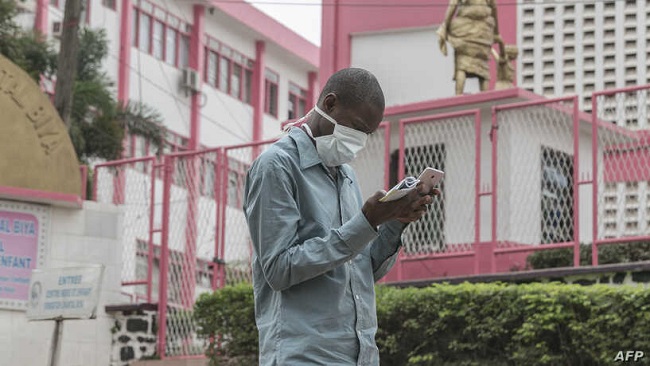




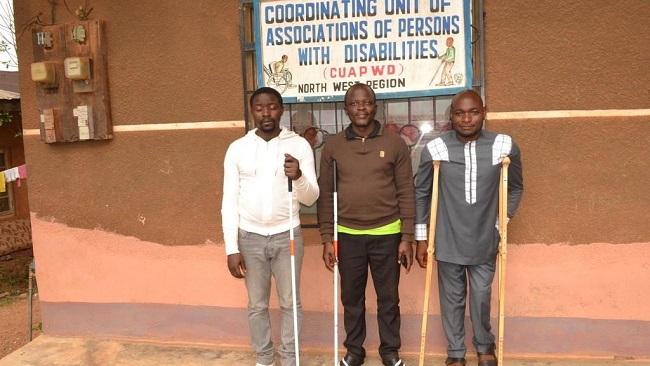
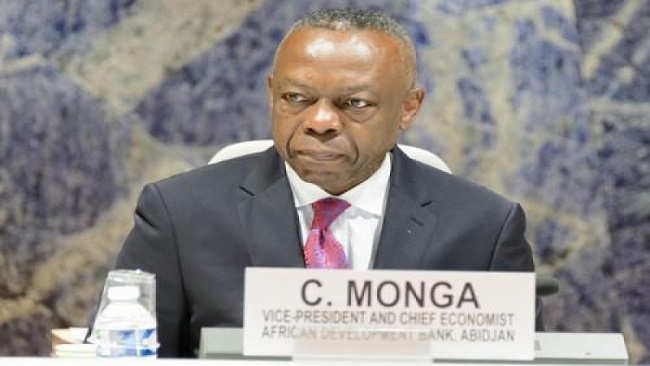
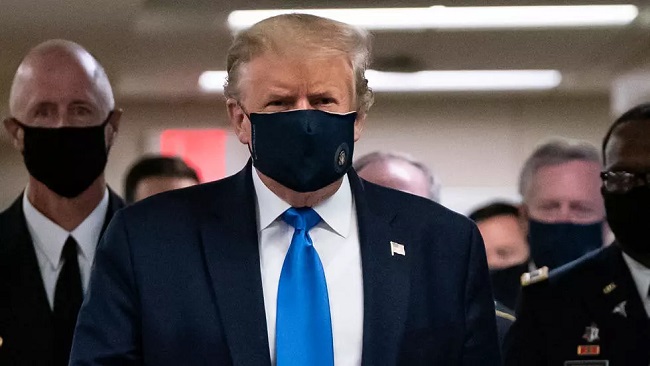













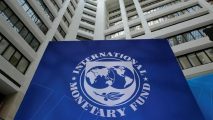

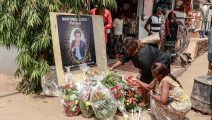


16, November 2020
Southern Cameroons Crisis: Power goes abegging in Yaoundé 0
When the Southern Cameroons crisis started very few people actually gave Southern Cameroons a chance.
The Yaoundé government always thought it had everything under control, especially as it had crushed the country’s political opposition which almost it out in 1991 political upheavals that rocked the country and in 1992 when the opposition leader, John Fru Ndi, beat the incumbent, Paul Biya, in an election that was marred by intimidation and corruption.
The ruling party robbed Mr. Fru Ndi of his success and since that election; the country has not been the same again.
But the Southern Cameroons crisis turned out to be a different crisis whose ramifications extended beyond the country’s borders.
While the fighters on the ground have been local boys with little or no military training and some mercenaries from neighboring Nigeria whose cardinal objective has been to strike fear in the military and to make some fast cash by exploiting the local population, the financing that has driven the insurgency for four years has come entirely from Southern Cameroonians leaving abroad.
The government did not know that the country’s English-speaking Diaspora was going to get involved in the crisis. An error of judgment on the government’s part dragged the Southern Cameroons Diaspora into the conflict, making it hard for the government to wrap its hands around the problem.
By arresting the leaders of the teachers and lawyers who started the protests in 2017, the government clearly demonstrated that it unwilling to engage the English-speaking minority in a detailed, meaningful and fruitful dialogue.
This costly mistake was really going to bite the government where it hurt the most. The conflict moved abroad and the government’s reputation – that is if it had any – took a beating with the Diaspora ensuring that Cameroon government officials did not feel at home anywhere except in their Yaoundé enclave.
As the country’s corrupt and incompetent president, Paul Biya, declared war on his fellow citizens in 2017 just because they were calling for an end to their marginalization, little did he know that he was pouring fuel into a burning house, a situation that has hurt the country’s economy in a big and bad way.
The Southern Cameroons economy which, prior to the conflict accounted for more than 40% of the country’s economy, has taken a nosedive, leaving many Cameroonians unemployed and many children out of school.
The country’s second largest employer, the Cameroon Development Corporation (CDC) has been limping since the insurgents shut down some of its operations in the country’s Southwest region.
PAMOL, another agro-industrial giant, is the hardest hit with most of its facilities in Ekondo-titi, Mondoni, and other locations completely put out of operation following the burning of its infrastructure.
Thousands of its workers have simply fled and many are very reluctant to return to work as the limping government is unable to provide much-needed security.
Even the country’s lone oil refinery, SONARA, has been dealt a severe blow. Though the government, known for its lies, has been defending its unsubstantiated thesis that the burning down of part of the refinery is an electrical accident, many people are simply not buying the government’s version.
For years, many Cameroonian have seen Mr. Biya and his bunch of destructive collaborators as snake oil salesmen and no Cameroonian with a good head on his shoulders will put any stock to what the government says.
For almost 40 years, Mr. Biya has been lying through his teeth. You can never take his word to any bank. He has promised Cameroonians many projects, but not many have been implemented and this has reduced him to clown in the eyes of his people.
But the biggest impact of the crisis and the one that will linger for a long time is the drying up of multiple revenue streams, a situation that has dumped the government in real financial problems.
SONARA, CDC and PAMOL were the government’s ATMs and ever since the insurgents destroyed those companies, the government has been losing sleep, with many of its officials seeking to obtain loans from multilateral financial institutions which, in many cases, are not prepared to extend fresh new sovereign loans to a country that has the bad habit of defaulting on its loan payments.
With its coffers rapidly running low and the president becoming a colony of diseases, much is falling apart in Yaounde and this is causing huge confusion and fear among those in power.
Power is going abegging in Yaounde. The vacuum is obvious but Mr. Biya has already compromised the military, making hard for anybody within the army to think of throwing the final blow at a government that is clearly on its last leg.
Most decisions in Yaounde are being taken by the Secretary General at the Presidency, Ferdinand Ngoh Ngoh, who is simply implementing decisions taken by Chantal Biya, the president wife who has distinguished herself with her flaming red hair and penchant for colorful dressing.
Many Western countries know that Biya is a lame duck and they will support anybody who overthrows the regime through a people power revolution.
Most Western countries have been counting on Prof. Maurice Kamto, the winner of the 2018 presidential elections who is currently under house arrest because he has been calling for a popular uprising in Cameroon.
But Kamto seems to be riding a dead horse. He has been counting on the Francophone majority which is simply not willing and ready to create that environment that may result in Mr. Biya’s dishonorable exit.
The country’s English-speaking minority has weakened the government and it is now up to the Francophone majority to deliver the last blow that will rid the country of a government that has made corruption and incompetence its hallmarks.
The writing is on the wall, but the Francophone majority is incapable of decoding because it is written in English. Francophone Cameroonians are illiterate in English. Somebody may have to interpret things for them to know that the heavy lifting has already been done.
They surely have to take out pages from political books published by Sudanese, Egyptians, Tunisians and Malians if they have to rid themselves of the millstone the Biya regime has placed around their necks.
Nobody will do it for them. They must take the risk. They have nothing to lose. Power is already on the streets looking for someone to own it. It is time to come together to make the ruling CPDM also known as the crime syndicate a distant memory.
The ruling party clearly belongs to the ash heap of history. All it takes is a little courage. If Cameroonians need that change then they must listen to opposition leaders who want to reverse the damage the corrupt Biya regime has inflicted on the country.
By Soter Tarh Agbaw-Ebai
Group Chairman/Editor-In-Chief